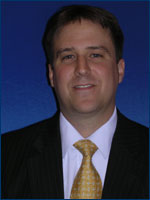The old Elton John song, “Don’t Go Breaking My Heart,” is about romance. However, the title could just as easily be a reminder of how important it is to keep your own heart in good working condition from a medical standpoint.
The old Elton John song, “Don’t Go Breaking My Heart,” is about romance. However, the title could just as easily be a reminder of how important it is to keep your own heart in good working condition from a medical standpoint.
Martin Engelhardt, M.D. Ph.D., a cardiologist at Woodholme Cardiovascular Associates/LifeBridge Health, recently shared tips to do just that at a Heart to Heart talk at LifeBridge Health & Fitness entitled, “The Effects of Exercise on Cardiovascular Health.”*
Dr. Engelhardt used knowledge, humor and illustrations to explain how staying active is necessary to keep your heart fit at every age, although the types and amount of workouts will change over the years.
“Exercise increases a person’s volume of blood, and the more blood, the more oxygen the body can carry,” said Dr. Engelhardt. “In turn, the heart muscle is strengthened, and it pumps more efficiently.”
In addition to the effects that working out can have on the heart, cholesterol and blood pressure can be lowered, bones and joints can become stronger, stress can be reduced and weight can be lost.
Dr. Engelhardt even cited studies that have found the life expectancy for people who exercise regularly is seven years longer than their peers who don’t, and they also have fewer incidents of strokes and heart attacks.
Before beginning any exercise routine, it’s important to check with your own doctor.
However, generally, one hour a day is the maximum length for a workout, but even 20 minutes can provide health advantages. Broad guidelines for adults indicate at least 150 minutes per week of moderate exercise is helpful. Seventy-five minutes a week of vigorous exercise a week is sufficient.
Although some people may need more and some less activity, it depends on each individual’s risk for heart disease and other illnesses or if they are trying to lose or maintain their weight.
What may surprise you is that Dr. Engelhardt said you can overdo exercise. Running marathons and other extremely intensive workouts can sometimes cause problems. Again, that’s why it’s vital that your own doctor help with a plan that’s best for you.
To contact Dr. Engelhardt or other LifeBridge Health physicians, you can call 410-601-WELL (9355).
*The Heart to Heart lecture series is sponsored by the Heart Center at Sinai.










